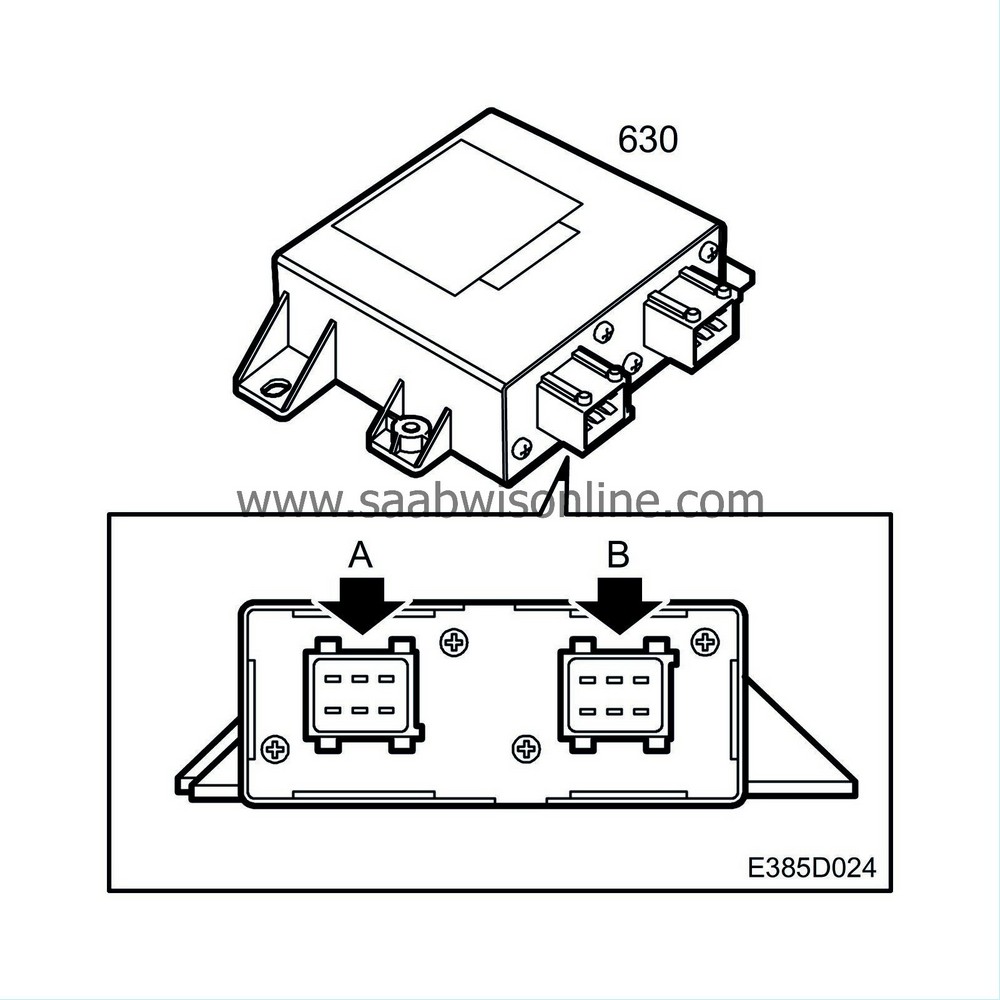Control module
| Control module |
The task of the control module is to:
| - |
energize the rear distance sensors.
|
|
| - |
ground the rear distance sensors.
|
|
| - |
communicate and collect information from the other systems in the car via the I-bus.
|
|
| - |
dictate when distance measurement shall occur.
|
|
| - |
check and control the distance sensors.
|
|
| - |
calculate the distance to the closest object behind the vehicle, using the values received from the distance sensors.
|
|
| - |
indicate the distance, to the closest object behind the car, to the driver by means of an acoustic signal via the SID.
|
|
| - |
check functionality through continuous self-diagnosis.
|
|
| - |
communicate with the diagnostic tool.
|
|
The control module has four modes. The distance sensors are active in mode 2 and 3. The four modes are:
| • |
Mode 1,
Standby
- The control module is in standby and waiting for information on the bus. If reverse is selected or engaged, the control module changes to mode 2.
|
|
| • |
Mode 2,
Active
- The control module (and sensors) monitor within a range of 180 cm but do not find any objects.
|
|
| • |
Mode 3,
Detected
- The control module monitors within a range of 180 cm, performs calculations and indicates the distance to the closest object via the SID.
|
|
| • |
Mode 4,
Off
- The control module is manually disengaged via the SID using the CLEAR button.
|
|
| Configuration |
When the control module is replaced, it is configured automatically to the car it is fitted in when the ignition is turned to ON.
The necessary information is retrieved from the control modules concerned via the bus. The necessary information is:
| • |
Type of transmission (Manual or Automatic, i.e. TCM or not)
|
|
| • |
Body type (4D or 5D, via bus from TWICE)
|
|
| • |
Selected language setting (from SID)
|
|
| Diagnostics |
The control module monitors its own functionality and inputs and outputs.
Functionality is tested when the ignition is turned ON.
Diagnostic trouble code B1605 is generated in the event of an internal control module fault. For further information see
Fault diagnosis strategy for electronic systems .



